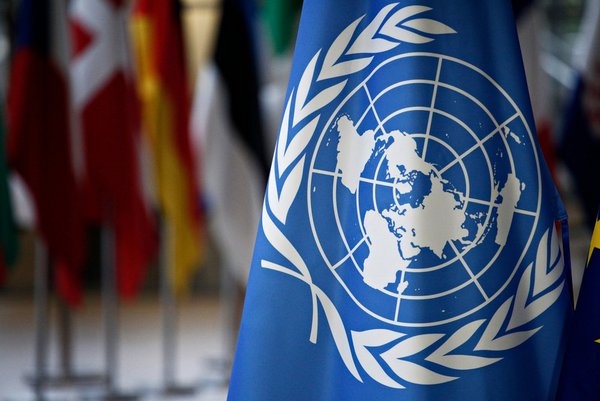- Share this article
- Subscribe to our newsletter
Fair supply chains secure human lives
The UN Guiding Principles on Business and Human Rights, which the UN Secretary-General’s Special Representative for Business and Human Rights John Ruggie had been working towards for years, were published in 2011. At the video conference, Ruggie repeated his Leitbild for the task: to stop seeing people as a part of the production process, but instead, place them as the focus of the activities. After almost ten years, the debate over the “Ruggie principles” has achieved a degree of seriousness, and companies are supplementing their annual reports with their activities for compliance with human rights. The principles are based on three pillars: state protection against exploitation (laws and policies); corporate policies which respect human rights and avoid transactions which pose a threat to these; and access for all to formal and informal complaint mechanisms in the event of abuse. “We are in desperate need of sustainable thinking” Ruggie stresses.
Human rights and the pandemic
The state of human rights on the labour market is precarious, even before the pandemic. Sharan Burrows of the International Trade Union Federation reported that 60 per cent of workers worldwide are working in informal sectors without collective bargaining agreements, occupational safety and health insurance. That’s around 1.6 billion people. Due diligence must be made obligatory for companies. The FAO’s current Global Nutrition Report notes that 130 million people worldwide can suffer from hunger as a result of the pandemic. Lockdowns of markets, interruption of supply chains, rising food prices all increase the number of unemployed and low-income workers who can no longer afford adequate nutrition. For South Africa’s Mthunzi Mdwaba, Vice-President of the International Organisation of Employers, the informal sector and associated corruption are the drivers of poverty, followed by hunger. However, he sees no general solution: the way out of the humanitarian crisis has to be on a specifically national and even regional basis.
Europe as a driver of implementation
Jens Frølich Holte is a Norwegian state secretary in the Ministry of Foreign Affairs, and he reported that Norway is directing its entire policy coherently towards human rights aspects. Stefanino Sannino is Deputy Secretary General for Economic and Global Issues at the European External Action Service, and he reported that 16 EU member states are already working on national action plans for implementing human rights in supply chains. In the process they can draw on the UN principles and also the OECD guidelines, added Krystyna Marty, state secretary in the Swiss Federal Department of Foreign Affairs. Right now, the German supply chain bill has reached its next stage in mid-July 2020. Gerd Müller, Germany’s Federal Minister for Economic Cooperation and Development and Hubertus Heil, the Federal Minister of Labour and Social Affairs, have reviewed the second corporate survey on the National Action Plan for Business and Human Rights and concluded that the results for voluntary commitments are disappointing. Because less than 50 per cent of companies list social and environmental aspects in their business areas, the two ministers are preparing a binding supply chain bill, for passage in the current year.
Timetable
The working group wants to establish a worldwide consultation with all stakeholders and deliver an overview by June 2021 showing what implementation there has been, where, and by which companies, civil society groups and official bodies. Victor van Vuuren at the International Labour Organisation in Geneva confirmed that there are already many small and good examples of fair labour, but these need to be rolled out on a grand scale. He explained that the next decade will be particularly important for the implementation of the Sustainable Development Goals and fair working conditions. There are still gaps in cooperation between investors, companies and the state. This is why a second stage from mid-2021 will draw up a detailed timetable for binding implementation by 2030. The timetable would be presented at the celebrations for the ten-year anniversary.
Roland Krieg, journalist, Berlin, Germany
More information at the website of the conference “Business and human rights – towards a decade of global implementation”





Add a comment
Be the First to Comment